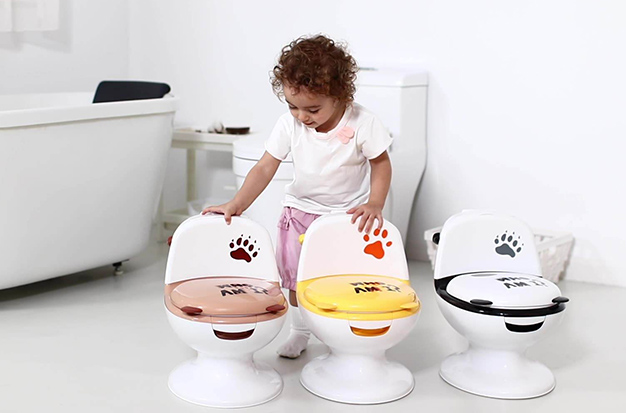Because their digestive systems are still developing, babies frequently spit up after eating. This condition also referred to as acid reflux or gastroesophageal reflux (GER), rarely causes issues and typically goes away as your child gets older. Extreme acid reflux symptoms, however, may indicate a different issue, such as gastroesophageal reflux disease (GERD).
What Causes Acid Reflux In Babies?
The lower esophageal sphincter in particular is still developing in your baby’s digestive system. His stomach may not function properly, which can cause the contents to occasionally travel back up the esophagus and cause spitting up or vomiting. Healthy babies frequently experience acid reflux, so as long as it doesn’t affect the baby’s ability to eat or general well-being, parents shouldn’t be overly concerned.
Why Is Reflux More Prevalent In Babies Who Are Bottle-Fed?
Babies who are breastfed or bottle-fed are both equally likely to experience reflux. However, studies have shown that compared to breastfed infants, bottle-fed infants who drink formula frequently and for longer periods of time experience reflux episodes. This might be due to the fact that formula is metabolized twice as quickly as breastmilk. The formula takes longer to digest, so when a baby’s LES doesn’t close, it’s more likely to escape and cause reflux.
The bottle itself, however, may also contribute to reflux, whether you give your baby breastmilk or formula. If a bottle overflows, your baby may consume too much milk or formula too quickly. Along with the milk or formula, it may also cause your baby to consume too much air. The Baby’s stomach is overfilled with air and liquid. Baby will be more susceptible to reflux if their stomach is overstuffed.
Signs Of Acid Reflux In Babies
Your baby may be experiencing acid reflux if he displays any of the symptoms listed below.
- vomiting and throwing up. Although all babies spit up, those with acid reflux may do so more often or forcefully.
- Poor feeding: Your baby may not be eating normally because reflux causes esophageal irritation (heartburn). As she retracted from the nipple to breastfeed, she might arch her back.
- Babies with reflux may act irritable or fussy after feedings.
- Breathing difficulties: When stomach acid enters the upper airways, babies with reflux may cough, wheeze, and experience congestion. When your infant lies flat, these symptoms might get worse.
- Hiccups and wet burps are more prevalent in those with reflux. They are brought on by esophageal irritation and too much stomach air.
The Function Of Warm Milk For Acid Reflux
Since milk is thought to have a calming effect on our bodies and on our minds, the myth that warm milk relieves acid reflux has persisted for a long time.
The truth is that milk is not a magic bullet for heartburn. Despite the fact that milk is a great source of calcium and vitamin D, it rarely soothes heartburn. In fact, milk with a lot of fat, like whole milk, is one of the things that cause heartburn the most frequently and can make acid reflux symptoms worse once they start.

Could It Be GERD?
Your baby may have gastroesophageal reflux disease (GERD) if acid reflux is severe, especially if symptoms persist for more than 12 to 14 months. In addition to the symptoms mentioned above, other indications of GERD include failure to gain weight, difficulty sleeping, frequent vomiting, and respiratory issues like recurrent pneumonia or wheezing. Some infants with GERD may also exhibit colic symptoms, such as excessive crying that lasts longer than three hours a day on more than three occasions per week. If you think your kid may have GERD, talk to their doctor.
Seven Tips To Reduce Reflux In Babies
How can reflux be lessened in infants who are bottle-fed? Follow these tips.
- Decide on the proper bottle. To avoid overfilling the baby’s stomach, the bottle should have a smaller, slow-flow nipple. Additionally, it ought to have an air valve (also known as an anti-colic valve) to stop air bubbles from accumulating.
- When your baby is eating and after, keep them upright. When feeding, keep your body upright and your head elevated above your stomach. A minimum of 30 minutes after they eat, you should keep them upright. This is a great opportunity to converse, cuddle, or sing to the infant.
- Avoid bouncing, vigorous play, or jostling your infant while the milk or formula is settling. After feeding, for 30 minutes, keep the baby reasonably still.
- Feed the baby more frequently and for shorter periods of time. Reflux can be prevented by avoiding overfeeding. As they put less pressure on the stomach than consuming a large amount of food all at once, frequent, shorter feedings are preferable to longer feedings for babies who are prone to reflux. Stop the current feeding if the baby is still spitting up, and then wait a while before feeding them again.
- Burp baby during and shortly after feedings. Baby will breathe in less air as a result of The Reflux Infants Support Association (RISA) recommends burping the baby after every 30-60ml that they drink from a bottle.
- Change baby’s diaper before feedings, so they won’t have to lie down on their back right after feedings.
- When possible, don’t put the baby to bed until at least 30 minutes after a feeding. Baby must sleep on their back to be safe, even though you don’t want them to do so right after a feeding. Of course, waiting until the middle of the night to put the baby to bed may not make sense.
Even so, try to wait at least 30 minutes after feeding before the baby’s nap and before putting him or her to bed for the night. This can be helped by feeding the baby as soon as they wake up.
Almost half of all infants with the more severe form of GERD have a milk allergy, and many more do as well.
Your child may have a milk protein allergy or intolerance if their reflux gets worse with age or turns into GERD. Additionally, your baby may be sensitive to or allergic to soy.
A milk or soy ingredient may be present in the formula; check the ingredient list to find out. Additionally, if you recently switched brands and your baby’s reflux suddenly worsens, it’s possible that your child is sensitive to a new ingredient. If you are concerned about an allergy or intolerance, speak to your doctor.
Conclusion
Although it is uncomfortable for the baby, keep in mind that baby reflux is generally normal. Baby is likely to experience reflux more frequently if you frequently feed them from a bottle. If you’re bottle-feeding your baby, the aforementioned steps will particularly help you reduce baby reflux. Once your baby is 12 to 18 months old and their LES has matured, reflux should stop.
Please consult your doctor if you have any worries about baby reflux, including allergy-related ones, or if you suspect your child may have more severe GERD.



